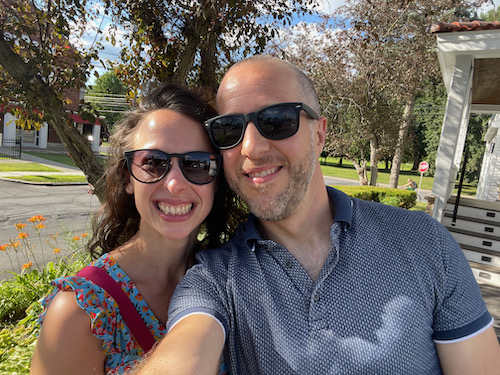How Being a New Podcaster Primes you for a Book
It’s worth mentioning that as a new podcaster, when you deliver a podcast on a weekly basis it will begin to do many things. (a) It will help you build an audience. (b) It will help you nurture an audience. And (c) It will help create value and trust. Finally, then there’s (d): once “a” through “c” are in place, it will position you to sell to that audience, especially if the item being sold is a book or a course.
So what does this mean for you?
If writing a book is your ambition, then a podcast is a great way to repurpose material, to test material, to share that material, and to position yourself to sell that material when the book is ready (or a course or a school or…insert your product here). In terms of equality, podcasting is a quasi-equal-access way (meaning it’s free to listen without a paywall…assuming, of course, you have a phone or a computer — so there are, unfortunately, some natural bars to entry here…) to position yourself to share your mission and your teaching to a broader audience.
Sticking with this book idea for a moment longer, podcasting is a way to take publishing into your own hands and on your own terms. If you are intent on selling a book, then with a podcast you will pitch a publisher with both manuscript and podcast in hand. Plus, you’ll have an audience.
If you don’t have a book or aren’t looking to sell a book, where should you begin?
It’s the simplicity of this question that makes it difficult to answer. In truth, there are a lot of places where you COULD start. First, starting is always better than not starting…because there’s great power in starting. But I doubt that’s the answer you’re looking for. After-all, did you ask me or a fortune cookie about podcasting? A good place to start, then, might be here: where would you like to go? It’s much easier to plan a trip when you know the destination. A better place to start might be here: how is it that you can help? Langston Hughes once said, “The prerequisite for writing is having something to say.” To borrow the phrasing and apply it to podcasting, I’d say that the prerequisite for podcasting is having something to say and then having the courage to say it. In other words, start with your mission and build your content. What is the mission you’re working on and how can you help? Great! Let’s say you know you that you have something to say. Now…do you start by recording it or writing it down? As a big-picture thinker, I prefer to start with the macro and then move towards the micro. Let the vision make the steps visible. Start with writing a BIG PICTURE overview. Maybe it’s a commitment to 6 episodes as a trial run. Great! Now what do you want these 6 episodes to do? Where do you want your listener to be by the end of episode 6? Decide the ending and sketch out 6 topics to get your listener to that bigger picture. For example: Episode A is about X and it will teach J. Episode B is about Y and it will teach H. Once that’s in place, outline each episode – a sketch is enough (I like bullet points). THEN, and only then, my friend, start to record. Recording is powerful because you’re not podcasting until you are recording (and sharing your recording). So don’t wait too long until you start to record — it’s easy to get hung up on the writing. To overcome this, my advice would be to make bad, fast sketches and start to record them. Set a due date. And record everything before you edit, change, or re-record. The value of podcasting is to serve an audience while solving their problem, nurture an audience while growing an audience, and creating trust when you go on to do something else. With or without a book, this begins with building content.
